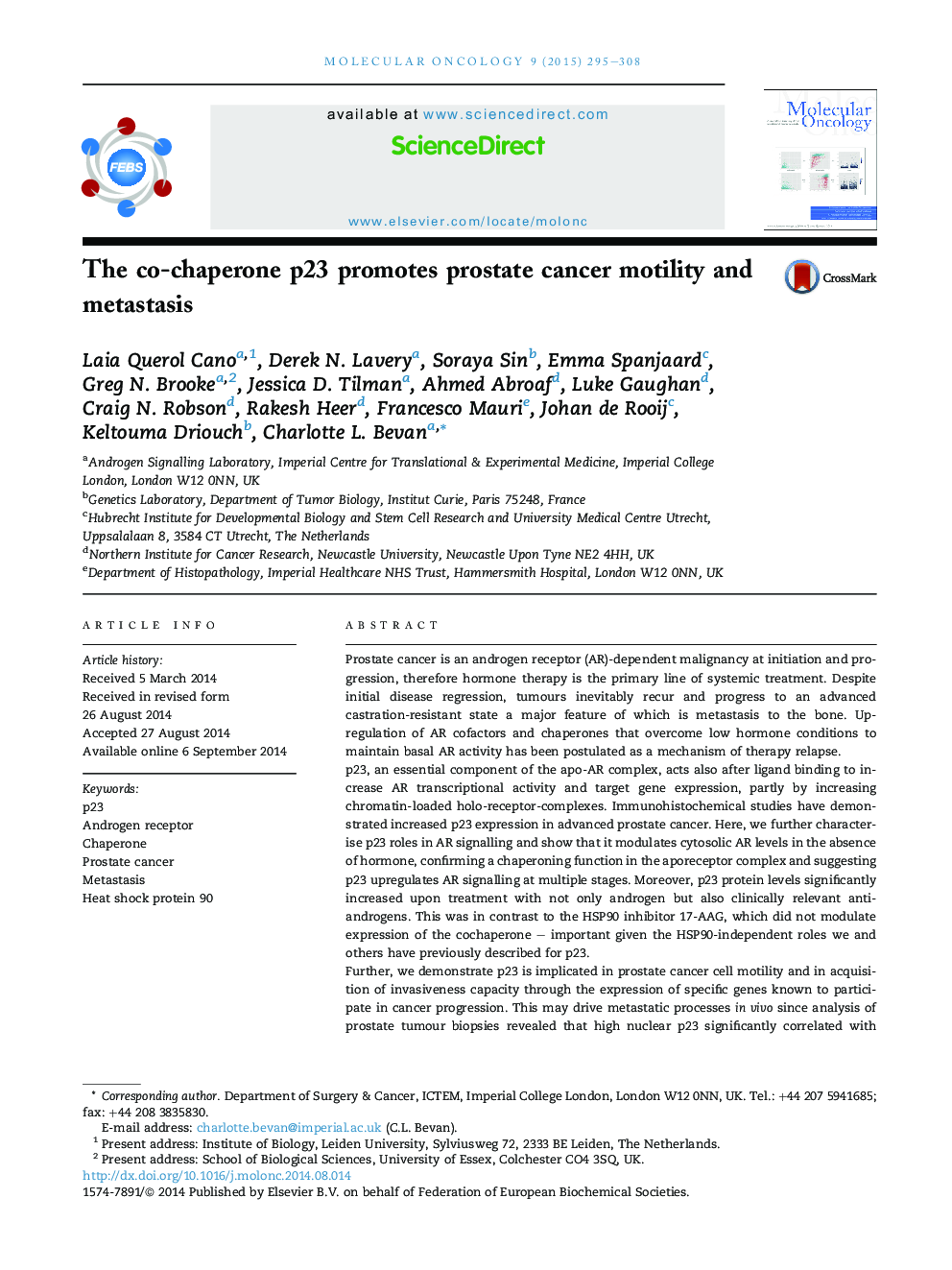| Article ID | Journal | Published Year | Pages | File Type |
|---|---|---|---|---|
| 10914817 | Molecular Oncology | 2015 | 14 Pages |
Abstract
Further, we demonstrate p23 is implicated in prostate cancer cell motility and in acquisition of invasiveness capacity through the expression of specific genes known to participate in cancer progression. This may drive metastatic processes in vivo since analysis of prostate tumour biopsies revealed that high nuclear p23 significantly correlated with shorter survival times and with development of metastases in patients with lower grade tumours. We propose that increased p23 expression may allow cells to acquire a more aggressive phenotype, contributing to disease progression, and that p23 is a plausible secondary target in combination with HSP90 inhibition as a potential therapy for advanced prostate cancer.
Related Topics
Life Sciences
Biochemistry, Genetics and Molecular Biology
Cancer Research
Authors
Laia Querol Cano, Derek N. Lavery, Soraya Sin, Emma Spanjaard, Greg N. Brooke, Jessica D. Tilman, Ahmed Abroaf, Luke Gaughan, Craig N. Robson, Rakesh Heer, Francesco Mauri, Johan de Rooij, Keltouma Driouch, Charlotte L. Bevan,
